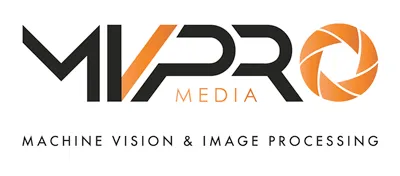A postgraduate student team from the National Robotarium, supported by Heriot-Watt University and the University of Edinburgh, has been selected to compete in the Amazon Alexa Prize SimBot Challenge.
Amazon’s new global AI competition asks teams to create help for a futuristic world that can understand natural language, interact with humans and accomplish tasks and missions. The National Robotarium team is the only non-US group to pass the initial selection process, demonstrating its expertise in embodied conversational AI research and teaching. The eight-strong team will receive a grant of $250,000 to support its development costs in creating an embodied agent to help people around the home, similar to a robot butler.
The National Robotarium is part of the Data-Driven Innovation initiative and is supported by £21 million from the UK Government and £1.4 million from the Scottish Government through the £1.3 billion Edinburgh and South East Scotland City Region Deal – a 15-year investment programme jointly funded by both governments and regional partners.
Stewart Miller, CEO of the National Robotarium said: “To be the only team from any country in the world outside the USA to be selected for the Alexa PrizeSimBot Challenge demonstrates the global significance and capabilities of the teams within the National Robotarium. Backed by the combined robotic and AI experience of Heriot-Watt and the University of Edinburgh, we’re demonstrating our ability to lead global development in AI, pushing the boundaries of what’s possible in a domestic setting”.
The SimBot Challenge has two phases including a public benchmark which requires teams to design a machine-learning model with language-guided visual navigation and task completion. This is followed by a live interaction phase during which teams will test their bots to respond to customer commands and multimodal sensor inputs from within a virtual world. The National Robotarium team, named EMMA (Embodied Multimodal AI) will compete in both phases. The public benchmark challenge phase is also open to individuals from academia and industry.
Professor Verena Rieser, Professor of Conversational AI at the National Robotarium, is advising the student team. She said: “The objective of Amazon’s latest Alexa Prize challenge perfectly aligns with the aims of the National Robotarium which is to use robotics and artificial intelligence research to help people, solve global challenges and work in partnership with industry. With AI technology and machine learning offering exciting opportunities to complement our daily lives, exploring how these innovations can be further embedded in our homes is a fantastic learning opportunity for our students.
“Our university has a proven track record in creating next generation conversational AI, having been a finalist two years running in the Alexa Prize SocialBot Challenge. The research that underpinned our entry has now become a successful spin-out company named Alana which is currently working with the RNIB to build conversational systems for blind and partially sighted people. The SimBot Challenge will now allow us to both broaden and showcase our expertise in embodied AI, demonstrating how this research can be applied to tasks rather than to social interaction”.
Along with the research grant, team EMMA will benefit from Alexa-enabled devices, free Amazon Web Services (AWS) cloud computing services to support their research and development efforts, as well as other resources, and Alexa team support. The winning team will receive a $500,000 prize.
You can find more information about team EMMA of the National Robotarium and the Amazon Alexa Prize SimBot Challenge on the National Robotarium’s website.
Stay up to date with the most recent automation, computer vision, machine vision and robotics news on Automate Pro Europe, CVPro, MVPro and RBPro.





